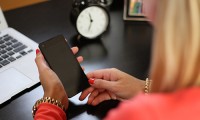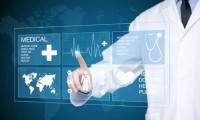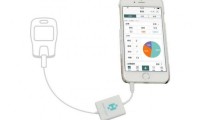-
UK’s NHS Aims to Build a Library of Reliable Mobile Health Apps.
- Source: mHealth Intelligence
- 651
- February 27, 2018
-
FDA Orders Recall of Drug Dosage mHealth App for Diabetic Patients
- Source: mHealth Intelligence
- 778
- February 26, 2018
-
How Precision Medicine is breaking off Chokehold on Healthcare with Big Data
- Source: dexlabanalytics
- 538
- February 23, 2018
-
Can digital tools really change patient behavior?
- Source: MM&M
- 794
- January 24, 2018
-
Digital currency-based fitness app Sweatcoin lands $5.7M in funding
- Source: Mobile Health News
- 650
- January 23, 2018
-
The Healthcare Technology Winners of 2017
- Source: hcanews
- 492
- January 1, 2018
-
Health2Sync raises $6M to expand its diabetes tracking and management service in Asia
- Source: drugdu
- 494
- December 11, 2017
-
Apple’s First Medical Study Signals Broader Health Ambitions
- Source: wsj
- 561
- December 11, 2017
-
US regulators approve first digital pill to track patients
- Source: medicalxpress
- 506
- November 15, 2017
your submission has already been received.
OK
Subscribe
Please enter a valid Email address!
Submit
The most relevant industry news & insight will be sent to you every two weeks.













